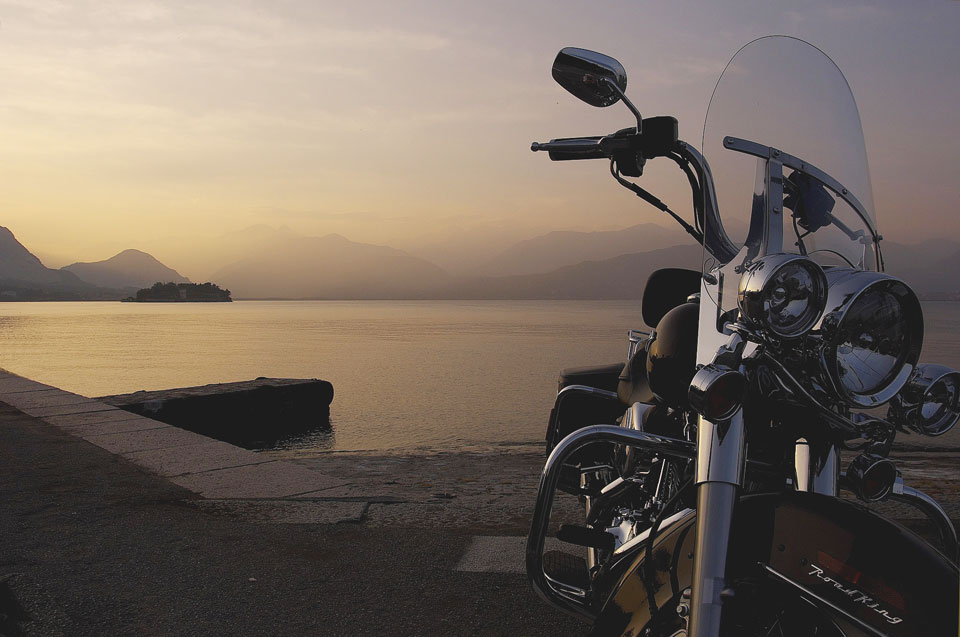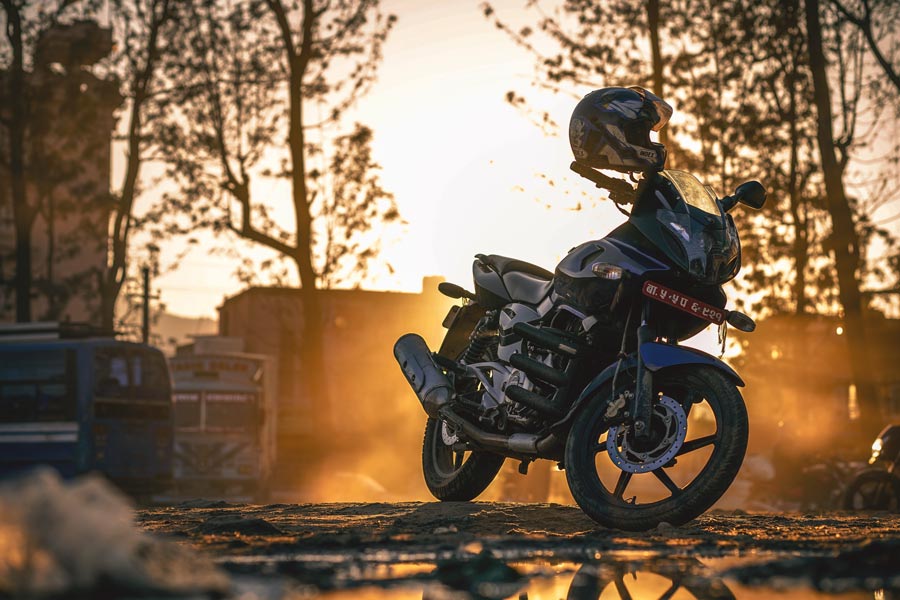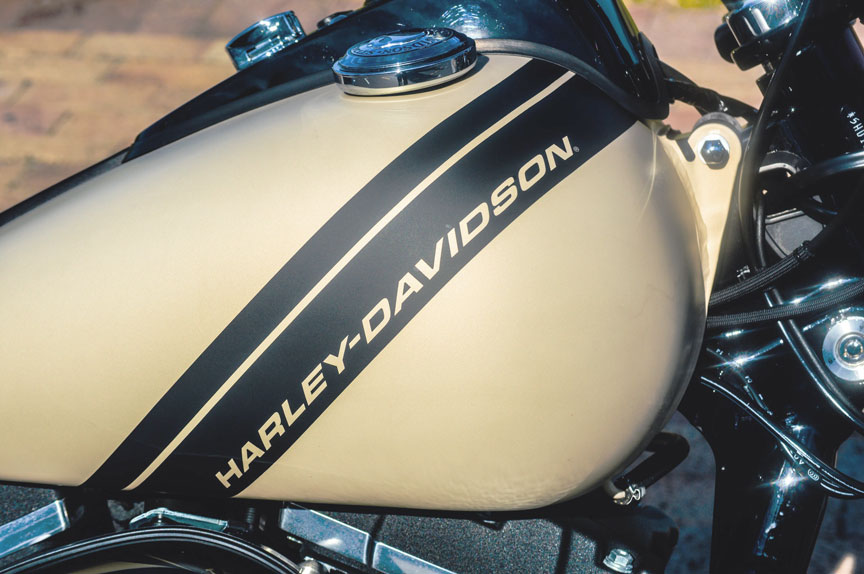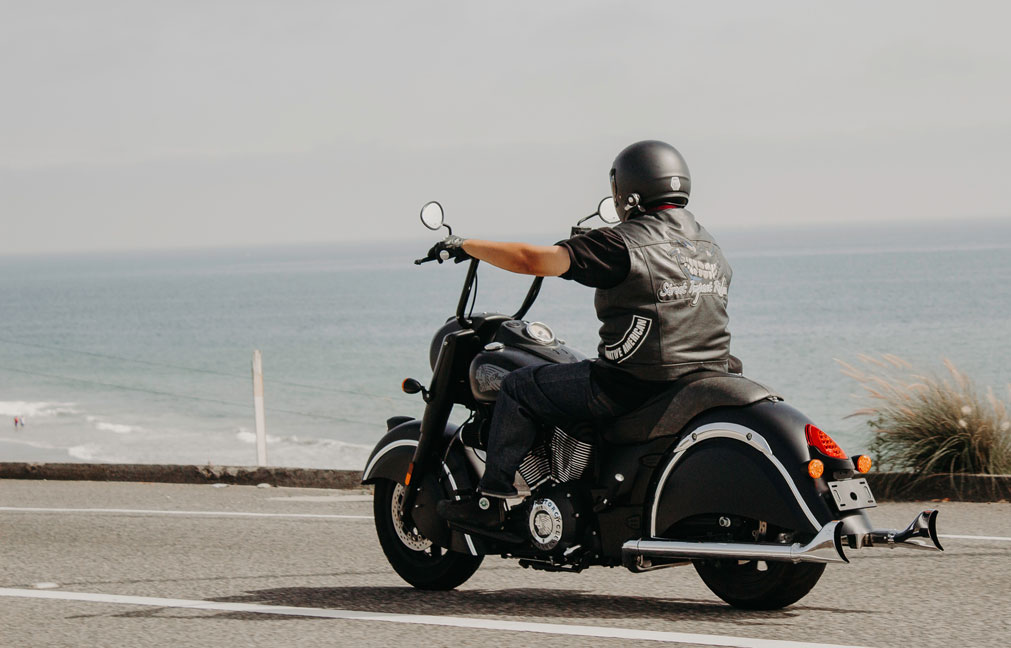5 Common Motorcycle Myths Debunked
Even if you’ve been riding for years, you’ve probably fallen for one of these common motorcycle myths. Far from harmless misconceptions, these myths may affect your ability to stay safe on the road. We’re here to set the record straight on these five common myths so you can be sure that you’re taking the necessary […]

September 8, 2017

Even if you’ve been riding for years, you’ve probably fallen for one of these common motorcycle myths. Far from harmless misconceptions, these myths may affect your ability to stay safe on the road. We’re here to set the record straight on these five common myths so you can be sure that you’re taking the necessary precautions whenever you ride your motorcycle.
Myth #1: Helmets aren’t safe.

Although Indiana doesn’t require riders to wear helmets if they are over eighteen, the evidence is clear that wearing a helmet is beneficial, not harmful, in the event of a motorcycle accident.
Helmets are about 37 percent effective in preventing motorcycle deaths. They’re even better at preventing brain injuries: according to the Insurance Institute for Highway Safety (IIHS), they’re about 67 percent effective in that regard.
In Indiana, the numbers tell a similar story. 58 percent of motorcyclists or their passengers were not wearing helmets when they were in fatal motorcycle accidents in 2015, according to the State of Indiana FY 2015 Traffic Safety Annual Report.
It is true that not all helmets are equally effective in offering protection to riders. The National Highway Traffic Safety Administration (NHTSA) reported that 56 percent of motorcyclists injured in crashes from 2007-2008 who were wearing novelty helmets had serious head injuries compared to only 19 percent of riders wearing regulation helmets.
You should avoid wearing a novelty helmet when riding and instead invest in a helmet certified by the Department of Transportation for safety. You should also buy a new helmet every five years or immediately following an accident. Even if you cannot see any damage to your helmet after an accident, it’s likely that it is damaged internally.
Myth #2: Young people are more likely to die in a motorcycle accident than any other demographic.

For once, it’s not the teens or the millennials who need a lecture about safety. According to the NHTSA, the demographic most at risk for motorcycle deaths are people aged 40-55. Over the past ten years, 40 percent of all riders killed in motorcycle accidents were 42 years old on average.
Of course, inexperienced riders of any age are more likely to crash as well. No matter what your age, keep your eyes on the road and stay alert of your surroundings at all times.
Myth #3: You should buy your dream motorcycle for your first bike.

Although you may be pining over a specific bike, you should really instead buy a motorcycle that matches your level of experience and ability. Plus, the money you save can be spent on buying all of the gear that will truly ensure that you have a safe riding experience.
Myth #4: Racing tires are better and safer than road tires.

Unless you ride your motorcycle exclusively on the racetrack, you should purchase road tires, not racing tires. The tires are made completely differently for different purposes.
Race tires work best at high speeds when increased temperatures allow them to create grip. Unless you’re breaking the law (and we hope you’re not), there’s no way you’re getting up to racing speeds out on the highway, which means your temperature will be too low to allow the tires to grip the road the way they’re intended.
Not only does temperature affect their effectiveness, but racing tires also have fewer grooves that make them unsuitable for riding on the road, especially in the rain. The shape of street tires also affords more stability than racing tires, meaning you’re less likely to fall off of your bike.
Trust the tire designers and manufacturers. If you ride on the road, purchase street tires, not racing tires.
Myth #5: You really don’t need anti-lock brakes if you’re an experienced rider.

Anti-lock braking systems (ABS) come as a standard safety feature on many cars, but that’s not the case with many motorcycles, despite the fact that braking on a motorcycle can be so much more difficult and dangerous than braking in a passenger vehicle.
ABS is a great investment for any rider, regardless of their experience level. For experienced riders worried about losing control of their bike or increasing their stopping distance, you should know that ABS doesn’t engage on a motorcycle unless it’s absolutely necessary. That means that ABS won’t interfere with your braking unless it senses that a lock-up is imminent, in which case you’ll be grateful for the interference. Also, the IIHS found that ABS actually decreased stopping distances for riders, regardless of the rider’s level of experience and even regardless of whether the road was wet or dry.
The rate of fatal motorcycle accidents for motorcycle with ABS is 31 percent lower than the rate of fatal crashes for motorcycles without ABS. Your experience level statistically doesn’t lower your risk of a fatal crash nearly as dramatically as having an ABS-equipped motorcycle does. Regardless of how good of a rider you think you are, ABS is a safety net that all riders should have.
Help from an Indiana Motorcycle Accident Attorney
Even if you haven’t been fooled by these common motorcycle myths, you will always run the risk of getting into a motorcycle accident when you ride, no matter how many precautions you take. Someone else’s reckless driving or riding can cause you to crash, possibly resulting in severe injuries. If you’ve been injured in a motorcycle accident, Hensley Legal Group can help. Call us today or contact us online for a free consultation.